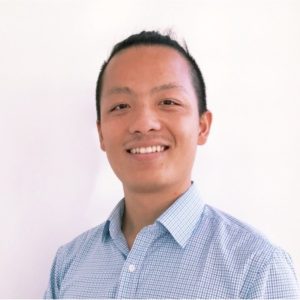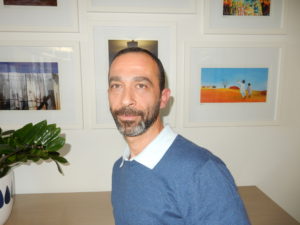News from AMES Australia
 AMES Australia breast cancer screening effort to feature at world congress
AMES Australia breast cancer screening effort to feature at world congress
A pioneering project to increase breast screening rates in migrant communities that AMES Australia helped deliver will be the subject of a presentation at the World Cancer Congress later this year.
Titled, ‘Can cross-sector partnerships increase breast cancer screening in hard to reach migrant populations’, the presentation will outline how AMES Australia partnered with Breast Screening Victoria (BSV) to increase awareness of breast screening in emerging migrant communities and also to provide a culturally safe environment for women to access breast screening.
The ‘Under-screened’ project was delivered in the Dandenong area in March 2017. The project was coordinated by Rosanna Zetterberg, a Senior Case Manager, who has since left AMES.
Eighty-five per cent of the women screened during the project were screened for the first time and may never have had a breast screen but for the project.
AMES Australia Team Leader said under-screened populations were those that faced systemic barriers to participation in cancer screening programs.
“Barriers to screening can include stigma, cultural and psychosocial factors, access and availability,” He said.
The World Cancer Congress will be held in Kuala Lumpur in October.
Mentoring program helping skilled migrants into work
A professional mentoring program run by AMES Australia is succeeding in getting newly arrived skilled migrants into jobs that fit their qualifications and experience while also helping to harness the skills and cultural knowledge migrants bring with them, according to new research.
A study of the effectiveness of the Skilled Professional Migrants Program (SPMP) and its mentoring component – which aims to bridge the cultural divide faced by some migrants relaunching their careers in Australia – found that a large number of professional migrants faced considerable challenges in finding work in their fields.
But the study also found that after completing the SPMP, around 80 per cent of students had found work and 61 per cent were in professional jobs.
Before enrolling in the SPMP program, less than 35 per cent of participants had worked in Australia. Those who had worked were mostly in low skilled or non-professional roles.
The study recommends increased investment in progr ams like the SPMP to improve migrant inclusion in the workforce as well as engaging more employers and stakeholders with professional mentoring program to help more skilled migrants to find work in their professions.
ams like the SPMP to improve migrant inclusion in the workforce as well as engaging more employers and stakeholders with professional mentoring program to help more skilled migrants to find work in their professions.
It also recommends replicating some of the features of the SPMP to other groups newly arrived in Australia such as refugees.
The SPMP program introduces professional migrants to Australian workplace culture and job seeking techniques. Participants receive advice about professional interviews as well as insights into Australian workplace culture.
The study titled ‘A report on professional mentoring in AMES Australia’s Skilled Professional Migrant Program (SPMP), found barriers to work included: unfamiliarity with recruitment practices; a lack of professional networks and difficulty growing them; little knowledge of Australian workplace culture; and, difficulties having qualifications recognised.
The research was based on interviews exploring the job seeking experiences of 379 people who had completed the SPMP program over four years between 2013 and 2016. It also included a focus group of 12 independent mentor-mentee relationships.
It canvased participants from 40 countries – the majority from China, India, Sri Lanka, Iran and South America. The largest groups of professionals were engineers, IT specialists, accountants, scientists and business managers.
Construction engineer Anthony Wang from China migrated to Australia in 2018. After an initial struggle to find work in his field, he joined the SPMP to learn more about the local job market and application process.
Two months after completing the program, he secured a job as a project coordinator working for a small building company.
CPP kicking goals
There are now 150 recently arrived professionally qualified refugees enrolled in AMES Australia’s Career Pathway Pilot (CPP), which supports humanitarian entrants restart their careers in Australia.
Funded by the the Department of Social Services, the CPP aims to help refugees who speak English well, and have a professional or trade skills or qualifications.
The free service helps skilled or professional refugees gain formal recognition of their skills or qualifications gained overseas and to upskill or reskill.
It also supports refugees to follow a career pathway that recognises the value of the skills and experiences they bring to Australia.
AMES Australia Senior Manager Teresita Romera said CPP Career Pathway Advisors work with clients to plan a career pathway in Australia.
“They also show each participant how to use existing skills in the Australian workforce and how to obtain recognition of qualifications. We are also helping participants find employment or training opportunities.
So far, around 13 participants have gained work or paid internships through the CPP.
One participant, Syrian refugee and accountant Bassel Nakhleh commenced a three month Internship at the Department of Health and Human Services as an Internal Project Officer.
Bassel, whose last role in Syria was as Marketing and Sales Coordinator, has also worked part-time as a volleyball coach.
Mobile technology informing AMES staff and practice 
AMES Australia’s Research and Policy Unit is using mobile technology to survey clients in an ongoing effort to understand their needs and perceptions and to improve service delivery.
The surveys are sent out as an SMS to clients on a special database of clients willing to participate and the surveys are completed on participants’ mobile phones.
A recent SMS survey asked recently arrived migrants and refugee clients about their settlement experiences once they had arrived in Australia and how these matched their expectation.
When asked for their reasons for coming to Australia, over half of the respondents (52 per cent) said for a better standard of living and lifestyle, whilst a quarter (24 per cent) said they came for Australian democratic traditions and freedoms.
Once they had arrived, learning English was found as the most important need for respondents, yet an overwhelming 64 per cent identified this as the biggest hurdle impacting on their settlement in Australia.
Another SMS survey asked a series of questions around perceptions of Australia Day. It found a large majority of migrants and refugees new to Australia plan to become citizens and feel it is important to mark Australia Day.
AMES Australia Research Officer Ada Chan said mobile technology made turning surveys around much quicker.
“Using the SMS tool, we can get the information we need in hours rather than days or weeks which means we can use it to respond to improve service delivery or respond to issues,” Ada said.
Laurie Nowell
AMES Australia Senior Journalist












